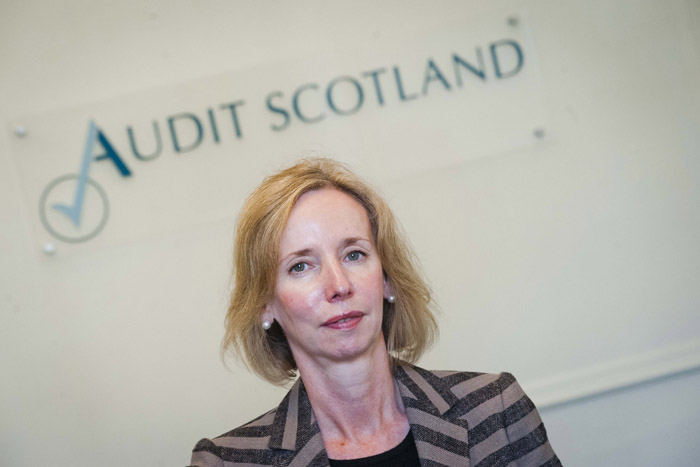In an interview with Public Finance, Caroline Gardner acknowledged that Scottish ministers had generally applied sound accounting processes, but said that tax-raising powers and the prospect, under the Smith Commission proposals, of welfare responsibilities demanded a more rigorous approach, including UK-style ‘whole government’ consolidated accounts.

Photo: UNP
Under the 2012 Scotland Act, the Scottish Parliament – through a new collection agency, Revenue Scotland – took over responsibility on April 1 for Land and Buildings Transaction Tax (replacing UK Stamp Duty), and Landfill Tax. From next April, Holyrood will also set and collect the basic rate of income tax above 10p in the pound, and further reforms are promised.
Gardner denied that her talk of risk was over-dramatic. ‘It’s a statement of fact,’ she said. ‘We know that tax revenues can go up and down for all sorts of reasons, due to the wider economy or the interaction between taxes, and the government needs to be able to manage that year on year.
‘It will have some limited borrowing powers from April to help it manage from one year to another, but they will be limited and are only intended as a sort of smoothing mechanism.’
Welfare responsibilities also presented fresh challenges, she said. ‘As we’ve seen over the past few years on the back of the recession, welfare payments have increased, so the level of variability and volatility in the government’s finances will increase, simply as a result of having new tax, borrowing and welfare powers.
‘I think those changes really change what’s needed in financial reporting.’
It was partly a question of scale, Gardner explained, but also, now it had tax-raising powers, the Scottish Government needed to understand the economic impact of its decisions. ‘It needs to be thinking about the trade-offs between raising extra money to spend on public services and the impact that will have on the wider economy.’
CIPFA, of which Gardner is a past president, has called for Scotland to adopt the UK approach of offering a consolidated balance sheet to inform judgements about the public finances across the range of public sector activity, and the auditor general threw her weight squarely behind that call.
‘It’s not an easy thing to do, but the Scottish Government has already contributed for the past few years to the UK government’s whole government accounts, so the experience is there. What hasn’t happened is consolidation at the Scotland level. So we don’t think it’s an unreasonable ask, and we think the benefits would certainly outweigh the costs.’
Gardner said she sensed a receptiveness to this idea in government. ‘No new powers are needed to make it possible, and I think it fits very well with the government’s commitment to good fiscal management and to making that the foundation of its approach to greater financial autonomy.’
She saw no reason why the present review of council funding need impede consolidation, saying: ‘In practice, the finances are already closely linked. Making changes to the way local government is funded might affect the way in which the financial position is reported, but it wouldn’t change the principle that having that comprehensive picture would be very important.’
Gardner agreed that the new responsibilities were balanced by ministerial access to policy levers capable of better gearing the fiscal regime to Scottish circumstance and political priorities.
She said: “I think the argument we would add is that, for the government itself but also for the Parliament in its role of scrutinising the budget and making decisions about spending priorities, and for all of us as citizens, taxpayers and people who rely on public services, having that clear picture of the public finances overall is a really important basis for making those sorts of decisions.
‘Government will have the option of borrowing on the financial markets and will need to be able to demonstrate financial stability. And welfare responsibilities obviously add to the complexity. I think that all adds to the case for having a much clearer and more comprehensive picture of the state of Scotland’s public finances than we’ve needed to have in the past.’




















